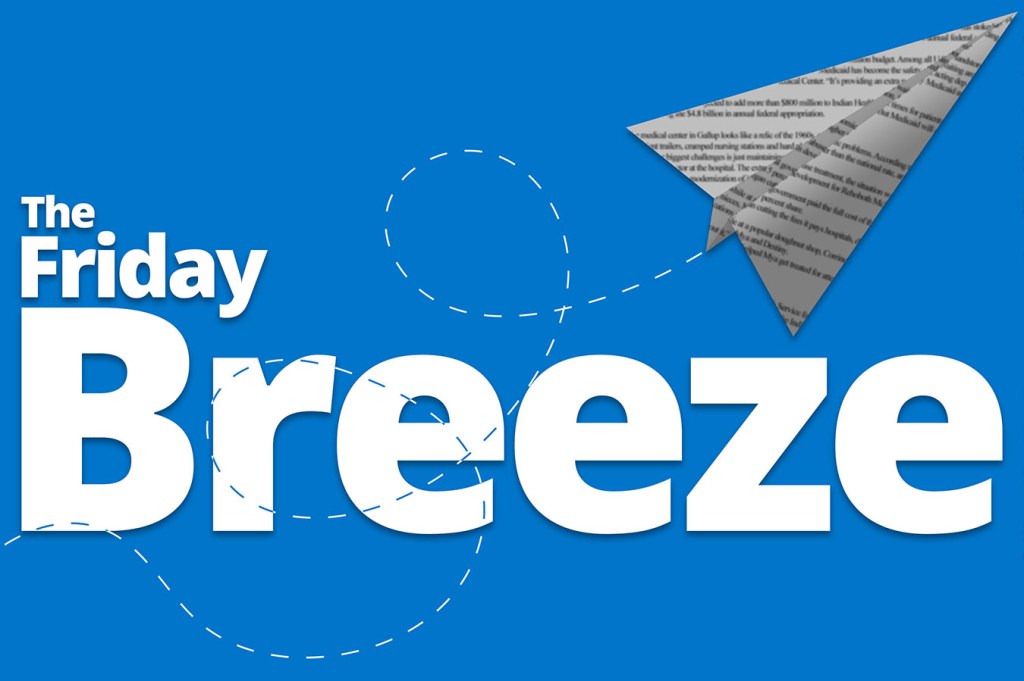A turbulent news week is capped off by a bit of hope arising from Alzheimer’s research. Disappointment and dashed hopes are the norm in the field, but there’s been a tiny breakthrough: Scientists uncovered a link between the disease and common viruses that lay dormant in the brain after childhood. There’s lots of cautionary language being bandied about (like, don’t get association and causation confused!), but it does open new possibilities for research that has been at a standstill for decades.
And now for what you might have missed this week.
Dr. Atul Gawande, who has just been named to head the health initiative formed by Amazon, Berkshire Hathaway and JPMorgan Chase, has said the U.S. health system is like a car built with Porsche brakes, a Ferrari engine and a BMW chassis. “You put it all together and what do you get? A very expensive pile of junk that does not go anywhere.” Now that Gawande is in the driver’s seat, will he actually be able to do anything about high costs? Those in the medical field were quick to praise him as a “luminary,” but many had concerns about his lack of experience managing a large organization — and the fact that he seems to have lots of other big jobs from Harvard to The New Yorker already demanding his time.
Bloomberg: Can This Surgeon Help Buffett, Bezos and Dimon Solve America’s Health-Care Crisis?
Bloomberg: Doctor and Journalist Atul Gawande Picked for Dimon-Bezos-Buffett Health Firm
And, pharma might be breathing a small sigh of relief. Gawande insists that, despite all the headlines, drug costs aren’t what’s driving spending. The No. 1 culprit according to him? Surgery.
Reuters: Head of New U.S. Corporate Health Plan Cites Surgery As Biggest Cost
President Donald Trump ended his policy to separate migrant children from their parents this week, but chaos at the border continues. Mental health experts and physicians are focusing on the lasting psychological and physical toll on the kids — many who remain in detention centers. Other questions are percolating as well, like: Who benefits from the business of separation? Providing care for those who have been detained is expensive and private contractors are lining up for the work.
Modern Healthcare: Immigrant Detention Crisis Could Yield Profit for Some Providers and Payers
Back before the health law, “unauthorized or bogus” insurance schemes were thick on the ground. Now that Trump has released his rule on association health plans (which give small businesses access to insurance options like those available to large companies and let them skirt some of the health law’s requirements), fraud experts are worried the era is going to make a return.
Modern Healthcare: Fraud Fears Rise As Feds Expand Access to Association Health Plans
And if you thought repeal-and-replace was a thing of the past, a group of conservatives helmed in part by the Heritage Foundation have released a new “repeal” plan. While it is extremely unlikely any Republicans in Congress will touch it with a 10-foot pole this close to midterms, the blueprint does show that there’s still an appetite to completely upend the health law.
The Hill: Conservative Groups Outline New ObamaCare Repeal Plan
What’s in a name? Well, critics of the administration’s plans to rename HHS — replated as the Department of Health and Public Welfare — says it means quite a lot. As part of a larger shake-up of agencies, Trump wants to tuck all public assistance programs (like SNAP) into HHS and change its name. But while officials say that adding “welfare” to the department’s title would make it clear what services it provides, others say the word brings with it a negative connotation that would make the programs vulnerable to budget cuts. (Spoiler alert: These moves require congressional approval and would strip some lawmakers of authority, so they’re unlikely to actually come to pass.)
In the miscellaneous file this week: Some disabled veterans are being told they owe the government thousands of dollars because of an insurance program they didn’t even know existed; it’s not often you can all but feel the giddiness radiating off of articles, but these jaw-dropping results from a new therapy for Duchenne muscular dystrophy is getting everyone emotional; a drugmaker rode a nice wave of good PR and marketing for donating anti-overdose injectors to police departments. One little problem — the drugs were almost expired. And remember that NIH alcohol study where scientists courted the industry for funding? It was yanked after an internal investigation revealed that “so many lines” were crossed that “people were frankly shocked.”
The New York Times: Veterans Owe the D.O.D. Thousands for Survivor Benefits. Why Can’t They Opt Out?
Stat: Sarepta’s Gene Therapy for Duchenne Raises Hopes for ‘Real Change’
Stat: Drug Maker’s Donations of Overdose Antidote Were Close to Expiring
And, as we head into the weekend, a question you can consider: What would you sacrifice for cheaper premiums?







